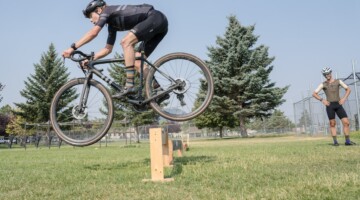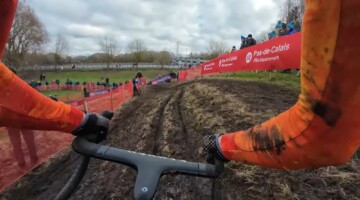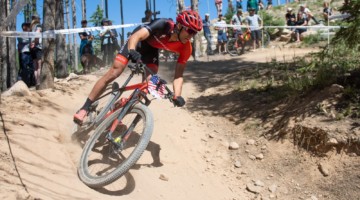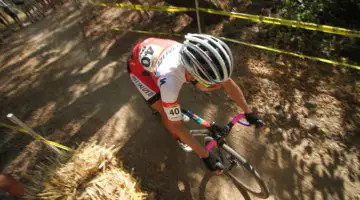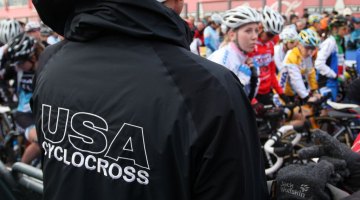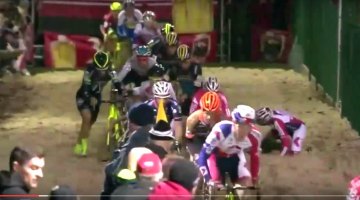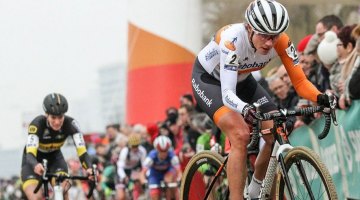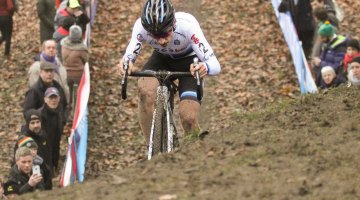by Evan Schmitt
EuroCrossCamp IX just came to a close and we recently caught up with a few of the campers in a series of interviews we will publish prior to Nationals. In our first installment, we talk to Whole Athlete-Specialized junior rider Cypress Gorry, whose homeland of Arizona is a world away from the flatlands of Belgium.
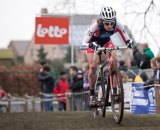
Cypress Gorry riding the rhythm section at the GVA Loenhout 2011. © Tom Robertson - tomrobertsonphoto.com
Cyclocross Magazine: You’re an Arizona boy, how did you get involved with cyclocross?
Cypress Gorry: I got into cyclocross about five years ago when I went on a vacation to Chicago. We were there to visit my brother, and he decided to take us to a ’cross race in Wisconsin. He had borrowed a bike for me to race on. The only three things I remember about this bike is that it was old, green and heavy. Riding around a field, and carrying a bike that weighed almost as much as I did at the time over barriers was even more fun than I had expected. Coming home, we found that a cyclocross series was starting up in Arizona. I went on to travel to Kansas City at the end of the season for Nationals and I was hooked. From then on I’ve raced at Nationals each year and become more serious about competing throughout the season in the past couple of years.
CXM: What has been your favorite part of the trip?
CG: I’ve greatly enjoyed racing the much more competitive scene every time I’ve been to Europe. I no longer feel like I’m over my head in the huge races as I did last year as a first year junior at EuroCrossCamp. With this trip, I’ve now been to Europe racing four separate times. But even now, I still seem to learn little bits from each race. The Christmas week of racing is also an incredible time to put what you learn to use. With racing every other day or so, you can put some new skills to use or try something new right away.
CXM: Have you picked up any of the local dialect at all?
CG: Besides learning to pronounce all of the race names correctly, I haven’t learned any of the local dialects. It also seems to me that it would be especially hard to pick up on the language while you are in Belgium. With the country being split up between Dutch, German, and some Flemish, there’s a lot to be learned depending on where you are. On top of that, if I did know Dutch, there are many pockets of different dialects within the language I still wouldn’t be able to understand. So with all of this added difficulty, I may just be better off not knowing what my competition is saying as they throw elbows and try to put you into a post.
CXM: Who has been your favorite racer to watch at camp?
CG: A few years ago I realized how bad I was at running barriers at the time. This realization came from watching Zach McDonald go over the barriers during the Nationals race. The following pre-season, I put some extra practice into running barriers and completely changed my technique. A few years later I still enjoy watching Zach in races as he seems to be just one step above much of the competition in the technical aspects of the race.
CXM: Do you think jet lag will affect the campers going back for Nationals?
CG: I put some thought into this issue before the camp had started. From my previous experiences I’ve always had a harder time with jet lag on the trip coming home than on the way there. With this in mind I arranged my flights to leave a little earlier than most, the day after our race in Loenhout. The travel may effect some of the first time camp attendees more than those of us who have already made multiple trips to Europe as well.
Stay tuned for more racer interviews!

